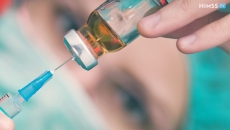Quality and Safety
Pophealth
Whether it's wider appreciation for telehealth and RPM, or more attention paid to healthcare inequities and the loneliness epidemic, there will be some good to come from this crisis, says its Chief Strategy Officer.
In March, we asked our readers to start sharing their stories of how the COVID-19 crisis is affecting them, both personally and professionally.
Nemours Children’s Health System uses multiple technologies to social distance, reduce contact and save PPE.
Ad hoc COVID-19 medical centers have a unique set of vulnerabilities: They're remote, they sit outside of a defense-in-depth architecture and the very nature of their purpose – care in a time of crisis – means security is a lower priority.
Zero Trust
"Cyber criminals will use a time of crisis to cover some of their actions in a very opportunistic way. And so we try to track and match our operations and vigilance to that."
The crowdsourced approach, funded by the Patient-Centered Outcomes Research Institute, aims to facilitate fast-track research on ways to better protect front-line caregivers.
Deep Dive: Clinicians are integrating social factors, genomics and medical histories to better treat patients.
St. Stephen's Hospital, based in Hervey Bay, Queensland, one of the first HIMSS Stage 7 hospitals in Australia, used bar coding, CPOE and change-management strategies to boost its patient safety.
Data-integrity challenges and repetition are posing big problems for electronic health records, with adverse financial and clinical costs, a new Black Book report shows.
Zero Trust
Intelligence agencies, security firms and Big Tech giants and all ringing alarm bells over the growing threat from cybercriminals in the wake of the global COVID-19 pandemic – with ransomware attacks, opportunistic phishing threats and other malicious activities all threatening healthcare organizations worldwide.
